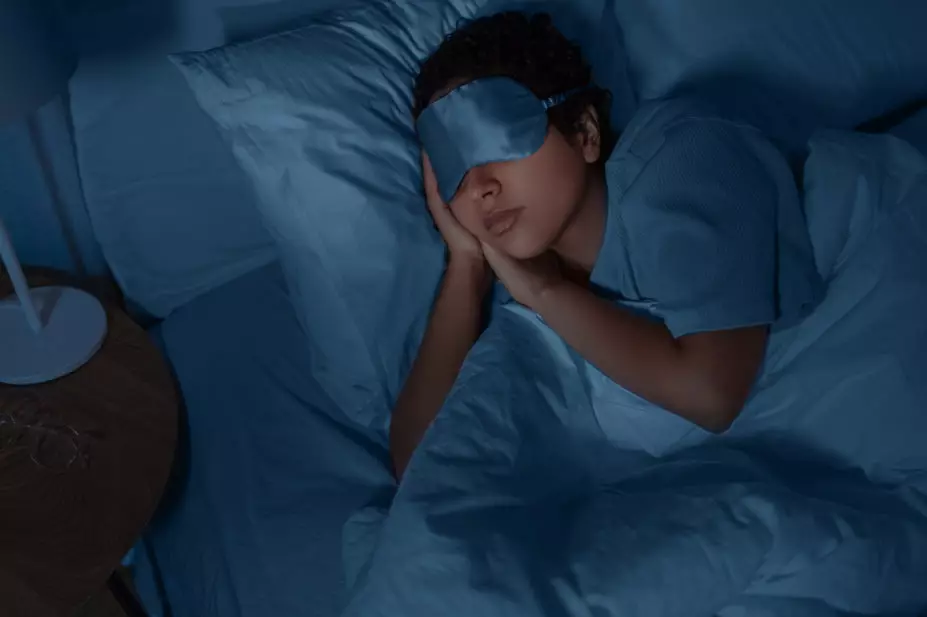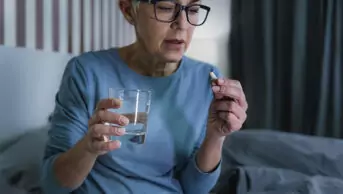
Shutterstock.com
The dual orexin receptor antagonist daridorexant improves sleep outcomes and daytime functioning in people with insomnia disorder, results from two clinical trials have suggested.
The two phase III trials, published in The Lancet Neurology (2022;21[2]:125–129), studied the drug in a total of 1,854 patients aged 18 years and above.
The first trial randomly assigned 930 patients to receive 50mg daridorexant, 25mg daridorexant or placebo each evening for three months, while the second trial randomly assigned 924 participants to receive either 25mg daridorexant, 10mg daridorexant or placebo every evening for three months.
The study aimed to see how participants’ ‘wake time after sleep onset’ and ‘latency to persistent sleep’ changed during the study.
‘Wake time after sleep onset’ and ‘latency to persistent sleep’ were defined as periods of wakefulness after having initially gone to sleep and the time between going to bed and falling asleep, respectively.
The trial also looked at changes in self-reported total sleep time and changes in patients’ sleepiness, as assessed by the Insomnia Daytime Symptoms and Impacts Questionnaire (IDSIQ), which scored how energetic; mentally and physically tired; or sleepy participants were each day.
According to the results, after the first month of the trial, participants taking 50mg of daridorexant saw their ‘wake time after sleep onset’ significantly reduce by 22.8 minutes (95% confidence interval [CI]−28.0 to −17.6) compared with those taking placebo.
Patients enrolled in the first study, who were taking 25mg daridorexant, also saw a reduction in‘wake time after sleep onset’ by 12.2 minutes (95% CI -17.4 to 7.0) after one month.
At one month, patients taking 50mg and 25mg of the medicine also saw their ‘latency to persistent sleep’ significantly reduce by 11.4 minutes (95% CI −16.0 to −6.7) and 8.3 minutes (95% CI −13.0 to −3.6), respectively, from baseline compared to those in the placebo group.
In the group taking 50mg daridorexant, patients also had lower IDSIQ sleepiness domain scores after one month, falling by 1.8 points (95% CI –2.5 to –1.0) in that time.
The researchers concluded that 10mg daridorexant was not efficacious, after no significant differences were found in this group for any of the three measures being studied.
Emmanuel Mignot, professor of psychiatry and behavioural sciences at Stanford University, United States, and lead author of the study, said that impaired daytime functioning was “a major issue often ignored” in insomnia treatment.
“Not only did we see efficacy of daridorexant on sleep induction, maintenance and patient-reported sleep quantity and quality, but importantly, at the dose of 50mg, on daytime functioning, notably in the sleepiness domain as measured with a new scale, the IDSIQ.
“Participants in the daridorexant 50mg group reported improvements in multiple aspects of daytime functioning, as assessed by this newly developed and validated instrument that assessed mood, alert/cognition and sleepiness.”
Hugh Selsick, consultant in sleep medicine and psychiatry, and lead clinician at the insomnia and behavioural sleep medicine clinic at University College London Hospital, said: “It is especially significant that, with this medication, they showed an improvement in daytime function on 50mg.
“For most patients, the purpose of taking a hypnotic is not to sleep better per se, but to feel and function better in the day.”
Selsick explained that the choice of hypnotics available in the UK was “severely limited” compared with many other countries, such as the United States.
“Therefore, the prospect of having a new drug licensed, particularly one from a class of drugs we do not yet have access to, is very exciting.”
A spokesperson for Idorsia Pharmaceuticals Ltd, which manufactures daridorexant, said that it had filed an application for market approval with the European Medicines Agency and hoped to hear the outcome of the review by the end of the first half of 2022.
Read more: Before the dawn: the tough regulatory climate holding back insomnia relief


